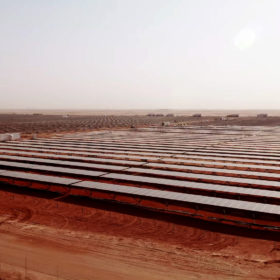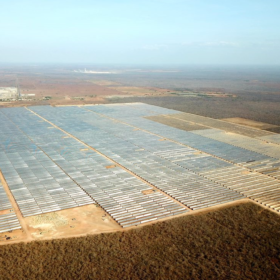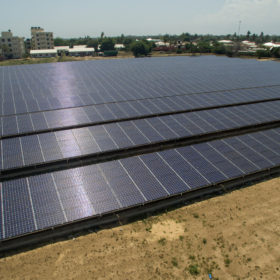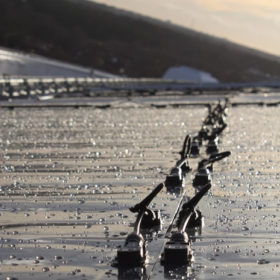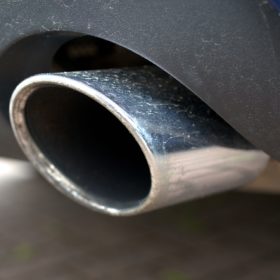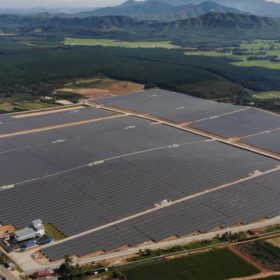First EBRD-financed slice of Benban project comes online
The 30 MW plant was developed by a consortium led by Infinity Solar Energy SAE – an Egyptian developer operating in Africa and the Middle East – with Germay’s ib vogt, investment vehicle MMID and private equity firm BPE Partners.
Shell Foundation and Rockefeller support $11bn African mini-grids fund
Crossboundary Energy Access – which claims to be the continent’s first mini-grid financing facility – wants to unlock $11 billion in private capital to bring energy to 100 million people in sub-Saharan Africa. Raising capital has been a struggle despite mini-grids being lauded as a solid solution for electrification.
Scatec off to a strong start in 2019 with solid financials and pipeline additions
Having put key PV projects into commercial operation, the company is capitalizing on their production. Scatec also has twice its current installed capacity under construction and nearly fourfold that amount – more than 4 GW – in the pipeline as 2018 expectations were surpassed.
African commercial and industrial PV market grows on the back of outages and high tariffs
According to a new report from BloombergNEF, cheap solar energy could benefit many businesses in sub-Saharan Africa. However, regulatory and financial obstacles are causing concern.
California rooftop legislation lifts order book for Swedish equipment supplier
CIGS thin-film production equipment company Midsummer posted record orders in 2018. With a U.S. partner, the company noted uptake was partly due to Californian requirements to integrate PV into all new (low-rise) buildings from next year.
African Development Bank’s $25 million for sub-Saharan renewables
The investment will be made into a larger equity fund which seeks to develop 533 MW in the market, which currently has the lowest rate of access to electricity in the world. Even small capacity additions can bring economic impacts to many people.
Cayman Islands project shows solar potential of hurricane-hit island nations
Richard Branson says the efforts made by one of his companies to roll out PV in the Caymans are part of a wider drive to bring renewable energy to the Caribbean.
EBRD turns to carbon pricing for future project assessments
The European development bank will amend its methodology to determine the financial viability of energy projects. Putting a price on the environmental and societal effects of air pollution, the EBRD is likely to funnel more funds into renewables.
Toyota and Panasonic to form EV battery joint venture
The deal foresees 3,500 employees from both companies joining the unit, as well as equipment and production facilities to be used to improve battery technologies and develop next-generation solutions.
Scatec Solar’s 65 MW Malaysian plant reaches commercial operation
It is the first of three solar parks of that size the Norwegian IPP has put in commercial operation in Malaysia’s growing market.

